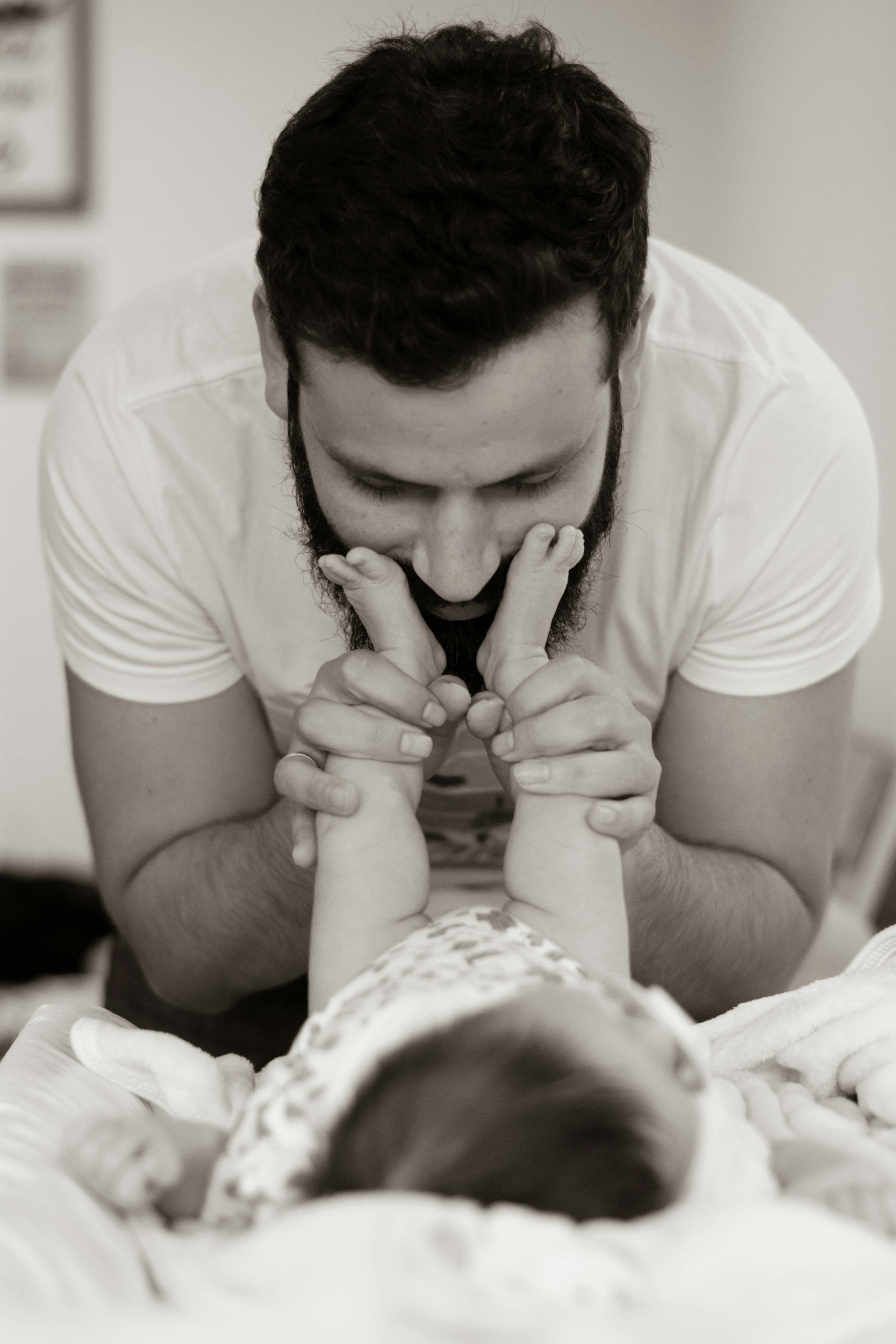When Dads Struggle Too: The Overlooked Side of Postpartum Mental Health
We often picture postpartum depression as something that affects only mothers, but fathers and non-birthing parents can experience it, too. Parenthood changes everything: routines, sleep, identity, and relationships. And while there’s growing awareness about maternal mental health, the emotional experience of new fathers is still too often overlooked.
The Stats We Don’t Talk About
Research shows that 1 in 10 fathers experience postpartum depression, and those numbers rise when their partner struggles with a perinatal mood or anxiety disorder. Dads may not always express distress the same way. Symptoms might look like irritability, anger, withdrawal, or overworking rather than sadness or crying. These changes are often dismissed as “normal adjustment,” but they can be signs that a father is quietly struggling.
Why It’s Hard for Dads to Ask for Help
Many men and non-birthing parents carry the pressure to “stay strong,” provide stability, and keep everything together. Culturally, it’s not always easy for fathers to admit when they feel overwhelmed, anxious, or disconnected from their baby. When those feelings go unspoken, they can lead to deeper isolation, tension in relationships, or even a sense of failure as a parent or partner.
Dad’s also aren’t screened as often as birthing parents, and birthing parents aren’t being screened often enough. It’s not common practice for new fathers to go see their physician for a check up, and it should be.
What Postpartum Might Feel Like for Fathers
Even if you didn’t give birth, your world still changed overnight. You might be:
Exhausted and running on little sleep
Feeling distant from your partner or unsure how to help
Missing your old routines and independence
Struggling to connect with your baby
Questioning if you’re doing enough
These feelings are common, and they don’t mean you’re failing.
Therapy for Fathers and Non-Birthing Parents
Therapy can be a space to slow down, understand what’s happening, and reconnect with yourself and your family. We might explore identity changes, communication in your relationship, and tools for managing stress, irritability, or intrusive thoughts. Sometimes taking care of yourself is the best way to care for your baby and your partner.
You don’t have to have all the answers to start. You just have to show up.
If you’re a new father, partner, or non-birthing parent who’s struggling to feel like yourself again, I’m here to support you. I’m located in Petaluma and offering virtual sessions across California.


